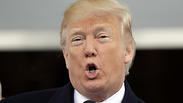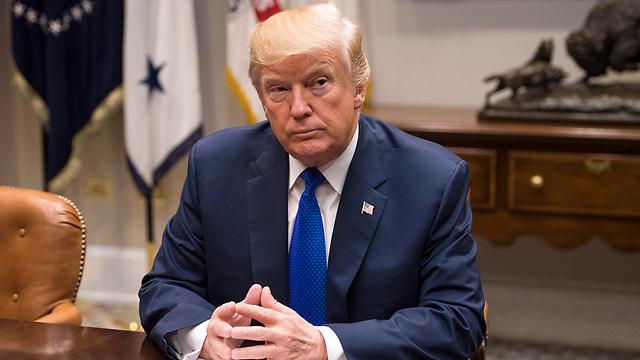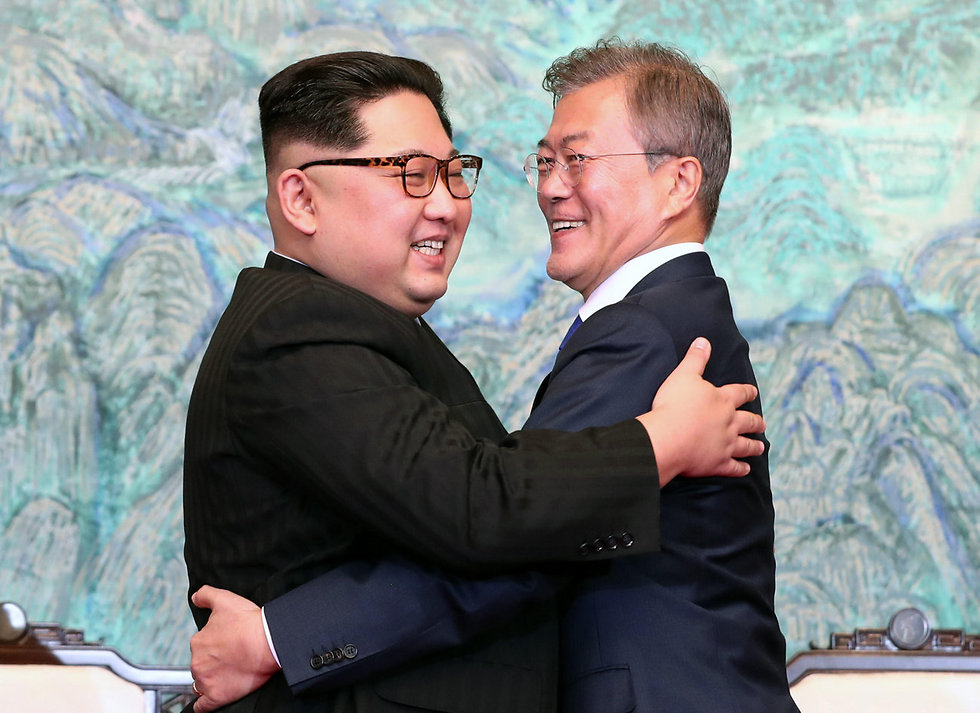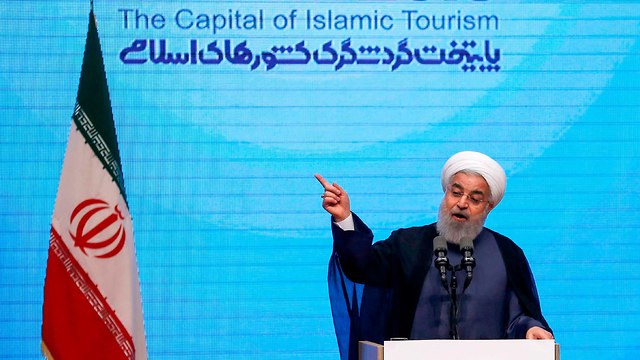

Trump’s ‘madness’ may be doing the trick
Op-ed: An American success vis-à-vis North Korea will weaken Iran’s bargaining position, which in turn will affect Trump’s Israeli-Palestinian peace plan. There is a difference between a plan presented by an inarticulate and rejected US president and a peace plan presented by a president who has scored significant achievements in the international arena.
But the agreement didn’t last long. North Korea dishonored the international community in general and the US in particular, and succeeded in developing a nuclear weapon despite the sanctions.
Has almost a quarter of a century made any difference? Can we trust the declaration made by Kim Jong-un, the former leader’s son, that his country is finally going to abandon its nuclear weapons?

The next stage is coming up, a meeting between the tyrant from Pyongyang and US President Donald Trump. Contrary to previous reports, Kim has presented conditions for the disarmament, which means nothing has been finalized yet.
One thing is clear: Tehran is closely examining every piece of information. There are initial signs that Trump’s threats are working in the Korean arena, and that’s exactly what Iran is afraid of, because Trump’s success in one arena will pave the way.
The European countries, primarily France and Germany, which are in principle against changing the nuclear agreement with Iran, have also started to blink. They understand Trump is insisting. They have also started talking about the need for a certain change.
Trump’s insistence, against the opinion of all experts and advisors and commentators, may actually be doing the trick. Now, we’re about to be flooded with commentaries arguing that even if there is an achievement or breakthrough, it shouldn’t be attributed to Trump. The Iranians, however, understand what the commentators are refusing to understand—that the rules of the game are changing. And they are definitely troubled by that.
The nuclear agreement with Iran is a bad agreement, mainly because it gave the Shi'ite country an open-ended ticket to a Middle Eastern expansion. Since the agreement was signed, Iran has turned into a regional power that controls—fully or partially—Yemen, Iraq, Syria and Lebanon, and influences Hamas as well. And its appetite is only growing.
It’s true that Iran is in the middle of an economic crisis. It’s true that the Iranian currency is collapsing. It’s true that there are different streams in Iran. But the thing is, as an exiled Iranian professor told me a decade ago, the Iranian regime doesn’t go by rational or conventional rules. Its logic is similar to Hamas’ logic: The most important thing is the damage inflicted on the enemy, regardless of the harm to Iran’s residents. That’s why it’s more important to invest a fortune in a military infrastructure in Syria than to solve Iran’s economic problems. Just like Hamas prefers to invest tens of millions of dollars in the industry of death than in the Gaza Strip’s reconstruction.
We must admit that the rational Western approach has failed miserably in the face of the North Korean and Iranian madness. Appeasement is perceived as weakness. So to make some kind of change, there may be a need for an American leader whose conduct is slightly “insane.” In this sense, contrary to what I myself thought, the Trump method may be providing to yield dividends. Kim wouldn’t have changed his stance if it weren’t for Trump’s tough stance.
Which leads us to the Palestinian arena. An American success vis-à-vis Pyongyang will weaken Tehran’s bargaining position, which in turn will affect Trump’s peace plan in regards to the Israeli-Palestinian conflict. It’s possible, just possible, that the US is delaying the presentation of its peace plan until it reaches a much stronger position after the developments in the Korean and Iranian arenas.
In recent months, the Palestinians have adopted an ultra-scornful approach towards the US in general and Trump in particular. It’s possible that in a few weeks from now, they will meet a new Trump. Granted, that won’t make them give up fantasies like “the right of return,” and the right-wing government in Israel would not rush to accept a peace plan which includes conceding most of Judea and Samaria. But there is a difference between a plan presented by an inarticulate and rejected Trump and a peace plan presented by a president who has scored considerable achievements in the international arena.
We are in the midst of a fascinating diplomatic chess game. Trump is making unpredictable and unrecommended moves in every sphere, including moving the American embassy to Jerusalem. There’s no need to be one of his fans to admit that if he succeeds, we’ll be living in a slightly more civilized world. And I will be forced to eat my hat too. Inshallah.

















